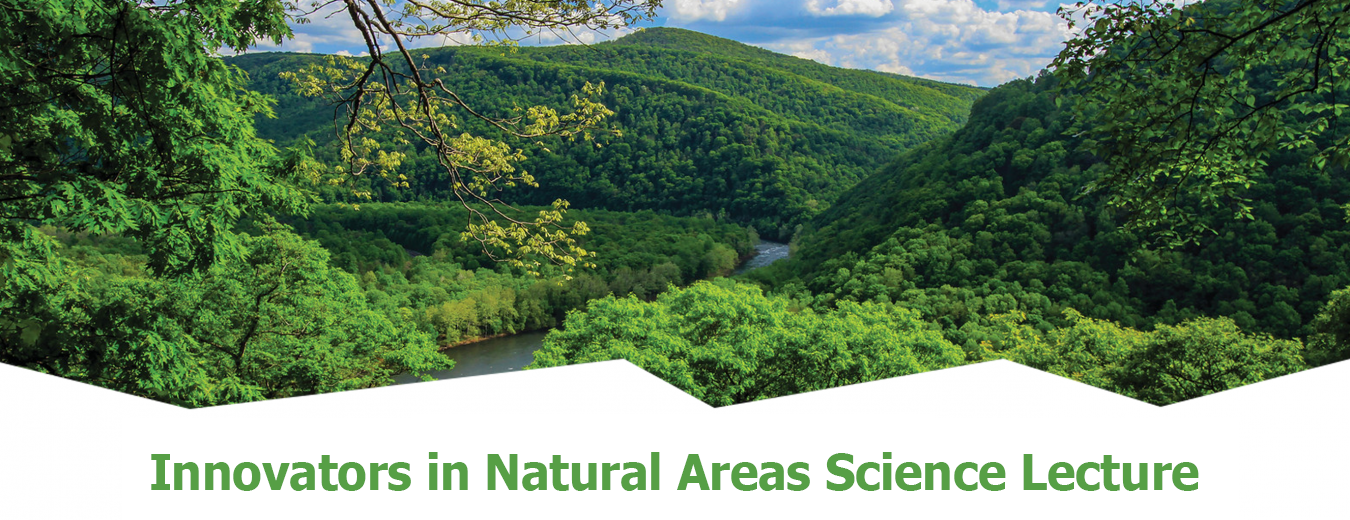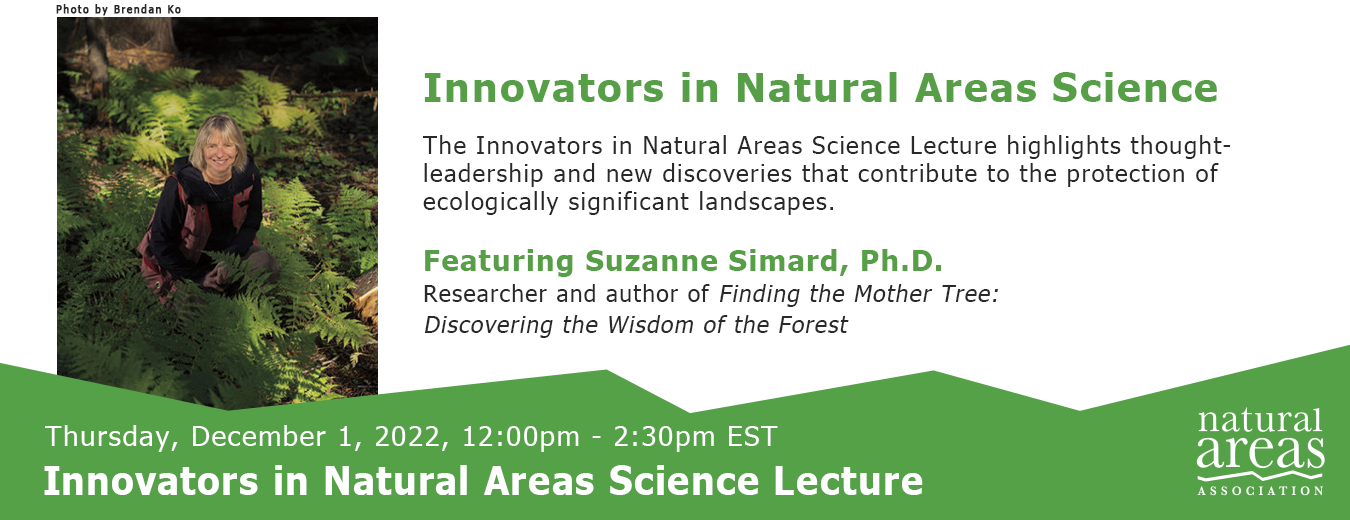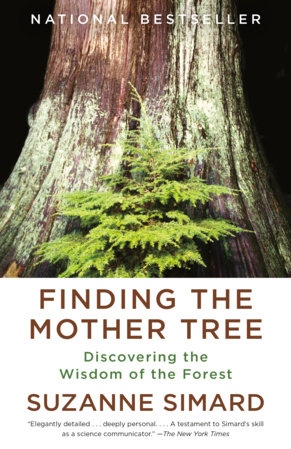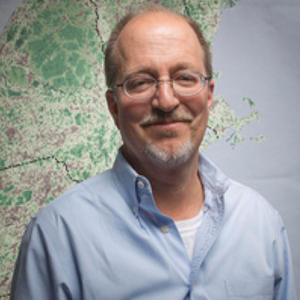
The Natural Areas Association (NAA) launched a new virtual program. The Innovators in Natural Areas Science Lecture highlights innovators in natural areas science in order to communicate new scientific discoveries that contribute toward the protection of ecologically significant landscapes. The goal is to share new and transformative research directly with land management practitioners.

The virtual lecture program included:
Special thanks to the Colcom Foundation for sponsoring this Innovators in Natural Areas Science Lecture.

| Thursday, December 1, 2022, 12:00 p.m. to 2:30 p.m. EST | |
|---|---|
| 12:00 p.m. EST/9:00 a.m. PST | Welcome & Introduction |
| 12:15 p.m. EST/9:15 a.m. PST | Lecture - Suzanne Simard, Ph.D, |
| 1:15 p.m. EST/10:15 a.m. PST | Fireside Chat with Suzanne Simard, Ph.D. - Moderated by Mark Anderson, Ph.D., The Nature Conservancy |
| 2:00 p.m. EST/11:00 a.m. PST | Q&A |
| 2:25 p.m. EST/11:25 a.m. PST | Conclusion |

Dr. Simard is a pioneer on the frontier of plant communication and intelligence; her TED talks have been viewed by more than 10 million people worldwide, and she is the author of Finding the Mother Tree: Discovering the Wisdom of the Forest (Penguin Random House), a New York Times Best Seller.
Dr. Simard’s first book describes decades of research to explain how trees interact and communicate using below-ground fungal networks. Research out of Dr. Simard’s lab investigates how these complex relationships "contribute to forest resiliency, adaptability and recovery and has far-reaching implications for how to manage and heal forests from human impacts, including climate change.
Practitioners who manage forest ecosystems within the natural areas community need to gain a greater understanding regarding the large-scale, scientific, field based experiments conducted by Dr. Simard and her colleagues. It is also critical for the natural areas community to consider how information coming out of this research can inform approaches to managing forests, especially in light of climate change.
The nation’s success in achieving climate resilience requires new and innovative approaches applied across regional and agency boundaries. NAA’s mission is to share new knowledge, best practices, and innovative discoveries to the natural areas practitioners who need scientific innovations the most.

Dr. Mark Anderson directs The Nature Conservancy‘s Center for Resilient Conservation Science which provides science leadership, ecological analysis, and landscape assessments for conservation efforts across 50 states. He holds a Ph.D. in ecology from University of New Hampshire and has worked as a conservation scientist for over 30 years (29 with The Conservancy). Over the last decade, Mark led the effort to identify and map climate resilient lands and waters across the continental US and has published widely on climate resilience, landscape dynamics and biodiversity conservation. One of the original authors of the National Vegetation Classification, his current research focuses on the intersection between biodiversity, ecological services, and climate change in terrestrial and aquatic systems. He manages a team of six spatial ecologists and tries (mostly unsuccessfully) to keep up with all their amazing work. In 2017, Mark received The Nature Conservancy‘s Conservation Achievement award, and in 2021 he received the Land Trust Alliance‘s Kingsbury Browne Conservation Leadership Award.
Join the people who protect and manage our natural areas.